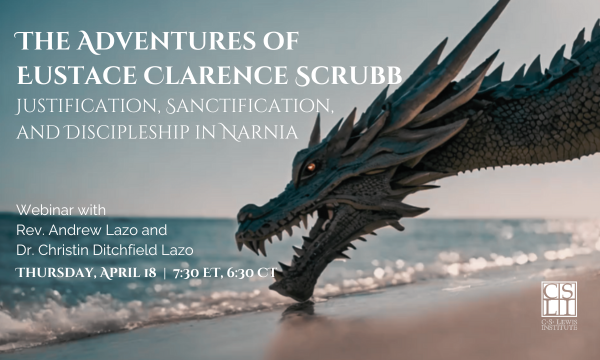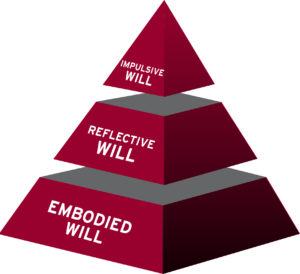Back to series
Transformation of the Will
Categories of Convictions



Jesus Believes It Is Possible!
Click here to open a Print - Friendly PDF
 Would Jesus ask something of us that couldn’t be done?
Would Jesus ask something of us that couldn’t be done?
At the center of all the biblical commands and at the very core of “everything I have commanded you” (Matthew 28:20), Jesus declares that we are to love God with everything we’ve got and love our neighbors in the same way that we cherish ourselves. Really? Is this possible?
The energy behind the writing of this curriculum comes from an insight that is quite frankly embarrassing. It is embarrassing because I should know better. At first, the insight doesn’t seem very dramatic. In fact, every time I have shared this personal “revelation” with others I have been sheepishly apologetic.
But here is the amazing truth: Jesus actually thinks we can become like him. Jesus actually believes that it is possible for frail and deeply flawed human beings to focus our complete affection on God and others.
The key word here for me is possible. I had unconsciously given up the possibility of actually doing what Jesus commanded. No, I had never consciously thought or said, “Jesus, I think you’re an idealistic dreamer,” or “Jesus, you can only expect so much from flawed humanity.”
I was not even aware that I had dismissed Jesus’ belief in me. But what had taken over my spirit in my attempt to be authentic was a focus on where I had fallen short of Jesus’ call. In my desire to make sure that I was not deceiving myself about my capacity for sin, I had given up the upside possibility that the character of Jesus could actually take over my life.
The Impossible Possibility
Because of this insight, I have come to realize that we need to hold two truths in dynamic tension. On the one hand, we need to be rigorously honest about our shortcomings. Part of what it means to live in the light of Christ is allowing him to shine that light in the hidden regions of our soul.
Yet at the same time we need to hold to the compelling vision that this same light illumines our path so that we can live into our potential of being God- and people-lovers. There is a Hasidic saying that advises us to go around with a piece of paper in each pocket, with one piece reading “I am dust and ashes,” and the other, “For me the world was created.” Yes, we are finite and broken people as well as those who have been redeemed to reflect the Redeemer.
Jesus would not ask us to be and do something unless it was possible. We can become the bodily dwelling place of Jesus who lives his life out through us.
The vision that Jesus has placed before us comes in the form of his summary statement as to what our life agenda is to be. In response to one of the “teachers of the law” seeking to know which commandment was most important, Jesus responded with what we have come to call the Great Commandment: “‘Love the Lord your God with all your heart and with all your soul and with all your mind and with all your strength.’ The second is this: ‘Love your neighbor as yourself.’ There is no commandment greater than these” (Mark 12:30–31).
He didn’t follow this up by saying, “I know I’m asking a lot, but do the best you can. I know you’ll never fully approximate this high and lofty goal, but it’s still worth striving for.” No, I added that part myself. In my spirit I washed out the possibility that this could actually be, saying, “I know the guy dwelling in this body all too well. Not a chance that this weak and feeble individual could ever approximate Jesus’ expectation.”
Yet something uplifting started to happen when my spirit began to rehearse a different message: “Jesus thinks this is possible.” I found a new energy released in me. A buoyancy of spirit beckoned me with the thought that I could live more deeply into the possibility of loving God with all my heart, soul, mind and strength, and loving my neighbor as myself.
With Jesus, it is possible to “love your enemies, [and] do good to those who hate you” (Luke 6:27). It’s not just for that rare person who seems to have tapped into a pool of grace that the rest of us have not been able to find.
The Paradox
Herein lies the paradox of being a Christ-follower. We need to embrace what appear to be two competing truths about ourselves—our deeply corrupted spirits and our redemption through Christ—if we are to approximate what Jesus believes is our potential as Great Commandment people.

On the one hand, if we are not deeply in touch with our dark side, we will miss the incredible grace that claimed us while we were in full rebellion against God and into our own self-exaltation. Like the alcoholic in a twelve-step program who started down the road to redemption by saying, “We admitted we were powerless over alcohol,” the believer has to acknowledge without qualification, “We admit we are powerless over sin.”
Left to myself, I don’t love God or my neighbor; in fact, I hate God, who crowds my autonomy, and I don’t really care what happens to my neighbor, as long as I am taken care of. Only when we see the extent of how corrupt our spirit is through and through will we rejoice with Paul’s words, “But because of his great love for us, God, who is rich in mercy, made us alive with Christ even when we were dead in transgressions” (Ephesians 2:4–5).
Without an awareness of our need for grace, we will simply turn the Great Commandment into a new law that we attempt to fulfill by our own effort.
It’s true that this summary commandment of Jesus serves the dual purpose of the law. On the one hand, the apostle Paul tells us that the law was given to show us how far short we fall before the holiness of God (Romans 7:13). It serves its purpose by driving us to our knees. Just try keeping the command to love God and our neighbors in our own strength.
We would not survive our own thought life for the next ten minutes. So in our study of the Great Commandment, we want to avoid making Jesus’ commandment simply a higher-level law that leads only to enslavement rather than freedom.
On the other hand, we don’t want to miss what is implicit in this command. Jesus thinks that living this truth is possible.
We walk carefully between the shoals of being in touch with our capacity for self-deception yet at the same time energized by the new capacity that God’s grace gives us to become the redeemed people in whom Christ dwells. Dallas Willard says it succinctly: “Grace is opposed to earning, not to effort.”1 The apostle Paul helps us with this tension.
On the one hand he said of himself, “I am . . . the worst of sinners” (1 Timothy 1:15–16); on the other hand he said that this awareness infused him with an energy and passion fueled by God’s grace that sent him across the known world. Here is how Paul brings these two truths together: “For I am the least of the apostles and do not even deserve to be called an apostle, because I persecuted the church of God.
But by the grace of God I am what I am, and his grace to me was not without effect. No, I worked harder than all of them—yet not I, but the grace of God that was with me” (1 Corinthians 15:9–10).
What is the relationship then between grace and law? Is the law nullified by grace? Do we not have to concern ourselves with the commandments this side of grace? To echo Paul, “Absolutely not!” (see Galatians 3:21). Dallas Willard states the connection between grace and law:
The presence of the Spirit and of grace is not meant to set the law aside, but to enable conformity to it from an inwardly transformed personality. . . . Law comes with grace in the renewed soul. There is no such thing as grace without law. The law is the structure of the life of grace in the kingdom of God.2

Jesus’ command to love God with all we’ve got and to treat our neighbor with the same regard as we do ourselves is meant to bring us to the end of ourselves. When we hear this expectation we’re supposed to say, “There is no way in the world that in myself I will ever be able to live up to this standard.”
This realization should cause us to cast ourselves unreservedly on the grace of God and repent of our sin-sick soul. Then we are flooded with the light of God’s accepting grace. Our heart of stone is massaged back to life as a heart of flesh that begins to beat within.
We find within a new motivation and desire to want to become all that God hopes us to be. Because our inner affections are being transformed to love what God loves, we begin to understand that his yoke is easy and his burden is light. The law we hated now becomes the life we have always wanted.
Transformation of the Will
Dallas Willard was again the one who led me to this breakthrough. In his very helpful article “Spiritual Formation: What It Is, and How It Is Done,”3 he writes that to be fully formed in Christ is to come to that place where our natural impulses come to reflect the feelings, thinking and actions of Jesus himself.
Since the will is the primary locus of this formation—the executive center of our being—Willard speaks of three dimensions or conditions of the will (he equates the will and the heart as we’ll see more fully later). He calls the first dimension of the will the impulsive will: it’s “directed or moved by or toward things that are simply attractive.”
This is where a baby begins. Babies are simply drawn to what is enticing in their environment. Adults who don’t outgrow this impulse to simply do what is pleasing to them are driven by immediacy and enslaved by their own desires. This appears to be the cultural norm.
Robert Bellah and a team of fellow sociologists went in search of the distinguishing characteristics of Americans and then published the results in their classic work, Habits of the Heart. They found one quality that sets Americans apart from those of other cultures: freedom. But unfortunately it’s a rather skewed understanding of freedom; it’s the freedom from obligation.
This view can be summarized in the following statement: “I want to do what I want to do when I want to do it, and no one better tell me otherwise.” Bellah makes the point that this view of freedom as radical independence does not provide the basis for any long-term covenantal relationships such as marriage or even a relationship with God.
Thankfully, Willard identifies a second dimension of the will. As a follower of Christ, he says, a person must adopt the practice of a reflective will, which involves beginning to set up a dialogical process where the good that God intends is examined over against our thinking, feeling and acting.
In other words, with this type of will we regularly reflect on our life in light of God’s revealed truth. For example, almost every day I begin my time of prayer with the ancient spiritual practice of the examen. My simplified version of this prayer is to ask the Lord through his Spirit to take me back through the previous day in order to review what he would have me pay attention to.
I call this “praying backwards.” My reflective questions are, “Lord, in what way were you present in the interactions and events of the day?” More specifically, “How were you at work? What did I miss? For what can I give thanks?” And then very specifically, “As a result of your life in me, how can I be formed to respond and act more like you?” I both celebrate God’s presence and my being in concert with his purposes while also carefully making note of the missed opportunities, misspoken words and other missteps.

While reflection is good, we’re not to stop there. The reflective will moves us toward a deeper goal: what Willard calls the embodied will. It was while I was reading his insight into this dimension of the will that my “aha” came. Willard, echoing Jesus, says it is possible to become so aligned with Jesus’ heart that our automatic responses are simply in tune with God’s heart.
This is how I apply this to myself: Suppose someone were to come to me and say something like, “I don’t get why you want to be a teacher and pastor. You show no evidence of having that gift. What were you thinking when you went into this profession?” Is it possible that the presence of Jesus could so engulf my inner and bodily reactions that my first response would be to want to do good to this person who was insulting me, and to want only the best for their life?
To be formed in Christ is to say, “Yes, it is possible. Yes, this is what I would want my inner world to become. I want to be so in tune with Jesus’ life in me that his embodied will becomes mine.”
Categories of Convictions
 In other words, Jesus intends to get down to the very core of our makeup. Michael Novak provides another scheme that parallels Willard’s framework of the will. He divides conviction into three categories: public, private and core. John Ortberg picks up on these in his book, Faith and Doubt.4
In other words, Jesus intends to get down to the very core of our makeup. Michael Novak provides another scheme that parallels Willard’s framework of the will. He divides conviction into three categories: public, private and core. John Ortberg picks up on these in his book, Faith and Doubt.4
Public beliefs. Public beliefs are those convictions that we want other people to think we believe, even though we may not really believe them. For example, if my wife puts on a dress and asks, “Does this dress make me look like I have wide hips?” the correct answer is, “I didn’t even know you had hips.”5
We might express public beliefs in our business life too; for example, there may be politically correct words and phrases that we feel we need to say we believe if we want to be a good company person, but inside we know we don’t believe them. Public figures are notorious for uttering public beliefs because they sound good.
The biblical illustration here is King Herod. After Jesus was born, some visitors from the East (whom we call “wise men”) told him about the one who was born King of the Jews. Herod told the wise men, “Go and make a careful search for the child. As soon as you find him, report to me, so that I too may go and worship him” (Matthew 2:8).
Did King Herod have any intent to worship this child? No, of course not. But it made for good public consumption because it would get him what he wanted.
Private beliefs. Private beliefs are those things we actually think we believe until they are tested. For example, on the night before Jesus was crucified, the apostle Peter stated his undying allegiance to Jesus. When Jesus then told Peter that he would deny him before the cock crowed three times, Peter said, “Even if all fall away, I will not. . . . Even if I have to die with you, I will never disown you” (Mark 14:29, 31).
When Peter said these words, was he sincere in that moment? Did he actually think he believed what he was saying? Yes, I think he did believe. Were these Peter’s true convictions? No. When the time came to stand up as a loyal follower of Jesus, he acted like he never knew Jesus.
We never truly know if we believe our convictions until they’re tested. We can assert in life or in death that our sure and certain hope is in Jesus Christ, and that nothing can move us off of that foundation. Then we might hear those frightening words, as I did, “You’ve got cancer!” Only then could I truly look inside myself to see if my sure and certain hope was in Jesus Christ in this life and beyond.
Core beliefs. Our core beliefs are the convictions that are revealed in our daily actions, based on what we actually do. These are the mental maps we follow. We will always act out of our core beliefs or convictions, and will never violate them.
For example, we believe in gravity. We are not able to violate that belief, so we’ll always act with that knowledge in mind. Gravity is part of our mental map. If we want to stay safe, we won’t walk to the edge of a hundred-story building; if we want to take our life, we might do so. Our actions are always the result of our core purposes or convictions.
My public convictions, then, are what I want you to think I believe, my private convictions are what I think I believe, but my core convictions are revealed by what I actually do. Where does Jesus target the transformation of our convictions? He intends to change us at our core beliefs, to establish his embedded will in us.
His desire is to be so central and present to us and in us that our automatic responses as well as our intended desire are simply to have our hearts beat next to his.
I am suggesting that this means we live in what might appear at first to be a contradiction, but actually, it’s a liberating paradox. On the one hand we must come face to face with our flawed nature and have a sense of how much we must live in grace at all times.
There is never a time when we outgrow the need for God’s undeserved embrace. As Paul says to his son in the faith, Timothy, “Be strong in the grace that is in Christ Jesus” (2 Timothy 2:1). Whether it’s a case of something I’ve done or something I’ve failed to do, I need the covering of God’s mercy at all times.
Yet . . . God has chosen to put his truth in this clay pot (earthen vessel), which is “being transformed into his likeness with ever-increasing glory, which comes from the Lord, who is the Spirit” (2 Corinthians 3:18). God thinks enough of us to abide in us and then set off on his work of renovation. And Jesus commands us to love God and the ones for whom he laid down his life because he believes that we can actually do it.
The irony is that living into God’s possibility is only possible when we confess the impossibility. May the following prayer express the desires of our heart as we begin this journey:
Dear Father, we hear your call to love you with everything that we are and to love those whom you infinitely value. Are you asking us to do something that is not really possible? Part of us confesses that we are only weak creatures whose passion for you can only be described as tepid. We hear that you want us to engage our hearts, souls, minds and bodies in full devotion to you, but when we look at our lives we feel that we pale in comparison to your expectation. If we are going to be what you want us to be, we will need an infusion of love that is not our own. And yet, we so want to live into your belief in us. As we embark on this journey together, create a sense of anticipation in us that you will stretch our capacity beyond what we ever thought was imaginable so that we can live into your possibility for us. Through Jesus Christ we pray, Amen.
Taken from The Essential Commandment: A Disciple’s Guide to Loving God and Others by Greg Ogden. Copyright(c) 2011 by Greg Ogden. Used by permission of InterVarsity Press PO Box 1400, Downers Grove, IL 60515. www.ivpress.com. Scripture quotations are from the New International Version (1984).
Notes:
1. Dallas Willard, The Great Omission (San Francisco: HarperSanFrancisco, 2006), 80.
2. Dallas Willard, Renovation of the Heart: Putting on the Character of Christ (Colorado Springs: NavPress, 2002), 214.
3. Dallas Willard, www.dwillard.org/articles/.
4. John Ortberg, Faith and Doubt (Grand Rapids: Zondervan, 2008), 42.
5. Humor is courtesy of John Ortberg from his teaching “Are You Making Better Christians or More Disciples?” delivered at the 2008 Reveal Conference, Willow Creek Community Church, South Barrington, Illinois. Available through Willow Creek Association resources at www.willowcreek.com/wca_index.asp.

Greg Ogden
PastorGreg Ogden, (D.Min., Fuller Theological Seminary) served as Executive Pastor of Discipleship at Christ Church of Oak Brook, IL. From 1998-2002, Greg held the position of Director of the Doctor of Ministry Program at Fuller Theological Seminary. Prior to coming to Fuller, Greg enjoyed 24 years in pastoral ministry. He is the author of six books: Essential Guide to Becoming a Disciple, Transforming Discipleship: Making Disciples a Few at a Time, The Essential Commandment: A Guide to Loving God and Others, Discipleship Essentials: A Guide to Building Your Life in Christ, Leadership Essentials: Shaping Vision, Multiplying Influence, Defining Character with coauthor, Daniel Meyer; and Unfinished Business: Returning the Ministry to the People of God.

 COPYRIGHT: This publication is published by C.S. Lewis Institute; 8001 Braddock Road, Suite 301; Springfield, VA 22151. Portions of the publication may be reproduced for noncommercial, local church or ministry use without prior permission. Electronic copies of the PDF files may be duplicated and transmitted via e-mail for personal and church use. Articles may not be modified without prior written permission of the Institute. For questions, contact the Institute: 703.914.5602 or email us.
COPYRIGHT: This publication is published by C.S. Lewis Institute; 8001 Braddock Road, Suite 301; Springfield, VA 22151. Portions of the publication may be reproduced for noncommercial, local church or ministry use without prior permission. Electronic copies of the PDF files may be duplicated and transmitted via e-mail for personal and church use. Articles may not be modified without prior written permission of the Institute. For questions, contact the Institute: 703.914.5602 or email us.
-
Recent Podcasts
The Side B Stories – Dr. James Tour’s story
by Jana Harmon, James Tour on April 12, 2024From a secular Jewish home, scientific scholar and...Read More
-
Why are Christians so Bad?
by Paul Joen on April 5, 2024
-
Questions That Matter Podcast – Dai Hankey and Gospel Hope for Weary Souls
by Randy Newman, Dai Hankey on April 5, 2024
-
Recent Publications
Isn’t Morality Relative?
by Christopher L. Reese on April 1, 2024It is widely accepted in the Western world...Read More
-
Do Muslims and Christians Worship the Same God?
by Andy Bannister on March 1, 2024
-
Artificial Intelligence and Its Impacts on Humanity
by John Lennox on February 13, 2024
0
All Booked
0.00
All Booked
0.00
All Booked
21934
GLOBAL EVENT: The Adventures of Eustace Clarence Scrubb (CSLI-Atlanta & CSLI-Chicago) 7:30PM ET/ 6:30PM CT
https://www.cslewisinstitute.org/?event=global-event-the-adventures-of-eustace-clarence-scrubb-csli-atlanta-csli-chicago-730pm-et-630pm-ct&event_date=2024-04-18®=1
https://www.paypal.com/cgi-bin/webscr
2024-04-18

Next coming event
Days
Hours
Minutes
Seconds
GLOBAL EVENT: The Adventures of Eustace Clarence Scrubb (CSLI-Atlanta & CSLI-Chicago) 7:30PM ET/ 6:30PM CT
On April 18, 2024 at 7:30 pm Virtual Online EventTags
Speakers

Greg Ogden
Pastor
Team Members

Greg Ogden
PastorGreg Ogden, (D.Min., Fuller Theological Seminary) served as Executive Pastor of Discipleship at Christ Church of Oak Brook, IL. From 1998-2002, Greg held the position of Director of the Doctor of Ministry Program at Fuller Theological Seminary. Prior to coming to Fuller, Greg enjoyed 24 years in pastoral ministry. He is the author of six books: Essential Guide to Becoming a Disciple, Transforming Discipleship: Making Disciples a Few at a Time, The Essential Commandment: A Guide to Loving God and Others, Discipleship Essentials: A Guide to Building Your Life in Christ, Leadership Essentials: Shaping Vision, Multiplying Influence, Defining Character with coauthor, Daniel Meyer; and Unfinished Business: Returning the Ministry to the People of God.




